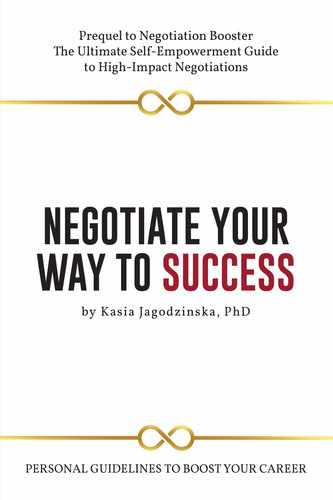Never Stop Looking for New Career Opportunities
IT takes approximately two months for a new behavior to become automatic and anywhere between 18 to 254 days to form a habit. The latter period depends on several factors, such as personal characteristics, intensity and type of the action, substances (or lack thereof) involved, and others. No wonder that my daily routine of looking for a new job after I left the law firm became second nature to me. During that time, I implemented a similar schedule to fill up my days. It prevented me from procrastination and introduced a structure to my new reality. Each morning I would refresh my mailbox hoping for a message of acceptance, then I would check on the status of the applications I submitted, and finally I would proceed with screening job ads. The rest of my day would be spent networking with business contacts or prospects, attending career events, or going for job interviews.
When I moved to Paris and settled in the new role, I was surprised to find that surveying the job market continued to be an item on my agenda. My morning hot chocolate and croissant were accompanied by the latest newsflash and a quick review of the job market. It was as if I needed to keep my options open. Knowing that there are multiple possibilities on the job horizon brought me a sense of comfort. Clearly, job searching had become my habit. Hardly the worst one.
To successfully navigate the job market, negotiation skills and tactics are often not enough. I learned it the hard way that if you enter a job negotiation with fear, self-doubt, or lack of conviction, you will not win no matter how well tactically you have been prepared. The interviewer will automatically pick up on the low vibes you send out. To land (or create) a job of your dreams, you will need to leverage the task-related aspect of the negotiation with the underlying emotional factors. Success starts with self-management.
To radiate an aura of confidence, you will need to develop strategies for personal empowerment. Knowledge is power. Build up your courage by equipping yourself with insights about the overall condition of the market and state of the economy, specific job requirements for candidates, the constraints that companies are facing (such as shortages of the workforce, for example), as well as any other factors that can affect the job market. A job advertisement is a goldmine of this information. All you need to do is read between the lines of what companies are looking for to start to notice certain trends and patterns.
Once you have done your research, proceed with an analysis of your portfolio of competencies and an inventory of your personal skills to see how you can supply the demand. Do not downgrade any of your talents or life experiences, even if they are not strictly professional. At a minimum, each person operates in a given societal frame. This means that we all deal with other people. Consequently, this translates into communication skills, conflict management capacity, ego and stress management, and human relations management, to name just a few managerial skills.
Once you know what the market needs are and what you can offer, you will notice that there are multiple options to choose from. You can apply for a job or fill a niche with your unique skill set by setting up your own business. Be creative. Somewhere there is a need for your product or services; you just need to find it. The more options you realize you have, the greater your bargaining power will become. A job candidate who is well aware of the existence of valid alternatives enters the job interview from a position of strength. Woody Allen once said that 80 percent of success in life is showing up. Show up as the winner that you are, and you will be treated as such.
Through the years, I have cultivated my habit of screening for jobs. I find that it has saved me from feeling like a hostage of a given career in many situations. Whenever I feel trapped, I always remind myself that there are other options. Having a choice is the ultimate form of freedom and independence. You do not need to execute the choice; it is sufficient to know that it exists. The trick is to look for new career opportunities perpetually. To craft them under the pressure of the moment is a moment too late.
Guideline 7—Key Takeaways |
|
1. |
Make career searching a life-long habit. |
2. |
Develop strategies for personal empowerment. |
3. |
Equip yourself with information about the job market. |
4. |
Make an inventory of your knowledge, skills, and abilities. |
5. |
|
